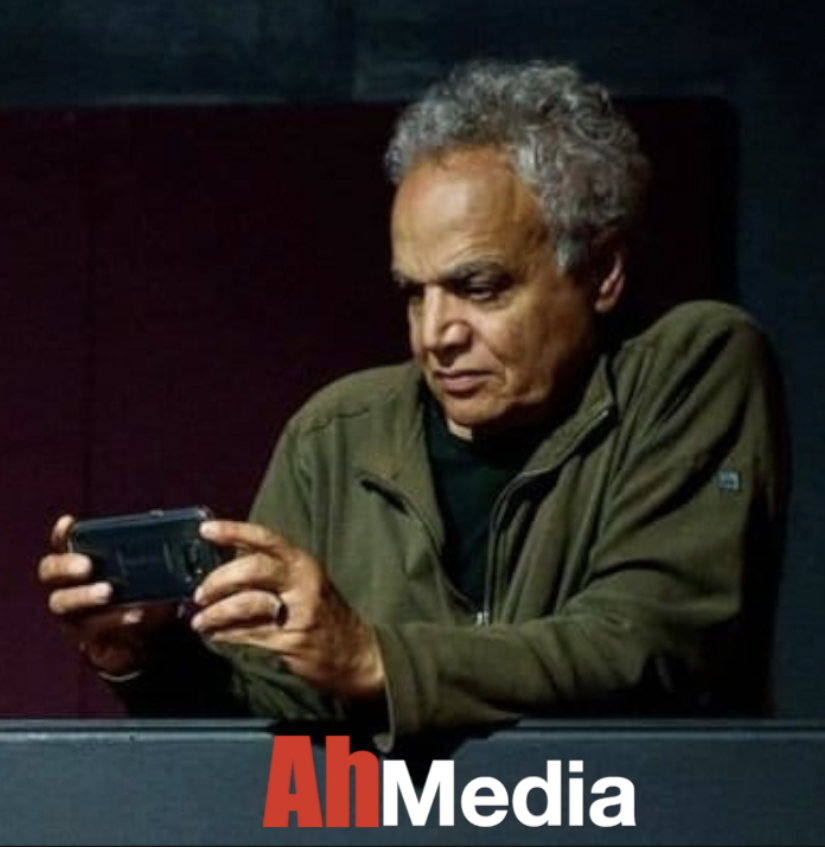The leading Egyptian political dissident, Ayman Nour, was suddenly released by the Egyptian regime after spending almost four years in Egyptian prison. In 2005, Mr. Nour was the first Egyptian to challenge the 80-year-old President Hosni Mubarak, who has ruled Egypt for almost 30 years, thanks to marshal law that was imposed on the Egyptian people during the first year he took office. Mr. Nour was comically accused of forging signatures while forming his Al-Ghad (Tomorrow) party; he needed only 50 signatures to legally form his new party; he got 50,000. According to the Egyptian prosecutor’s office, “he was released Wednesday for health reasons”. Now there is a lot of speculation about the Egyptian regime’s sudden humanitarian gesture. In spite of the fact that Mr. Nour has been suffering from severe diabetes during all his time in jail, he was denied medicine and treatment at time. Some asked whether Mr. Nour struck a deal with the Mubarak regime to secure his own release. “I swear to God there was no deal” with the government, Nour assured his supporters from the Al-Ghad headquarters in downtown Cairo. It was well-known that Mubarak was under tremendous pressure from the U.S. and the West to release Mr. Nour; in fact, the former U.S. secretary-of-state Condoleezza Rice refused to meet the Egyptian president demanding the release of Egypt’s most infamous prisoner known to the West. President Mubarak refused claiming that it is up to the Egyptian court, now the whole legal system in Egypt is on trial; Mr. Nour release was a total surprise to everyone even his wife Gamilah Ismail, he was abruptly dropped off at his apartment in Zamalak; an upscale suburb of Cairo, she was according to her doing some earring when Mr. Nour called her asking for the apartment key. “ I thought it was a trick”, she explained, “this regime could surprise you, good or bad”; she explained. In my last visit to Egypt, I tried to meet his wife at the Al Ghad party headquarter, the police was surrounding the building I couldn’t even get into her damaged office of an earlier arsenal. Earlier this same pressure on the Egyptian regime was applied by the West to release the prominent Egyptian sociologist dissident, Dr. Saad Eddin Ibrahim. Dr. Ibrahim fled Egypt a few years ago, and as he explained to me in an email conversation,” “I am a fugitive now…., continuously on the road between Qatar and the U.S and any country in between that does not have an extradition treaty with Egypt.” Meanwhile, a Washington Post editorial on February 16 argued that President Obama should make any visit by Egyptian President Hosni Mubarak conditional upon the release of Ayman Nour and the dropping of charges against exiled human rights activist Saad Eddin Ibrahim, while Egyptian government sources have said the decision is “not a result of U.S. pressure.” Dr. Ibrahim himself weighed in with his thoughts, stating that the release and its timing represent a deliberate, timely gesture of goodwill from Egypt to the U.S., and the “health reasons” justification put forth by the General Prosecutor was simply to “save face” from allegations that the Egyptian regime cave in to U.S. pressure. Ibrahim noted U.S. Senate Foreign Relations Committee Chairman Kerry’s visit to Egypt last week, stating the possibility that Kerry carried a message from U.S. President Obama in this regard, and that this step will help Egypt insofar as it will allow Obama to “extend a hand to Egypt,”
When it comes to dealing with dictators of Arab and Muslim countries, the West has a way of deciding which regime should be changed and which individual be freed. But there are many less-known or unknown political prisoners in Egypt. According to Dr. Alaa Aswani, the Egyptian novelist who wrote The Yacoubian Building, there are “thousands of political prisoners in Egypt”, and “some of them have been imprisoned for more than 15 years without even a trial,” he added. I asked him why they don’t get the same attention from the West, and why no one demands their release? “Their only crime is they are Islamists,” Dr. Aswani sadly explained to me in a telephone conversation. Did Mr. Mubarak release Ayman Nour to warm up to the new American administration? We don’t know for sure and will never know. If we had made a deal. President Mubarak feels that the Obama administration doesn’t have any stomach for getting in the regime changing business, and the Obama administration realize that spreading the democracy thing in the Arab/Muslim world proved to be a risky business, Mr. Mubarak feels President Obama may be willing to work with him to support his effort in grooming his son to take over the Egyptian crown. Which is facing a fierce opposition from the Egyptian street, everyone I talked to in my last visit in Egypt feels that; the 80- year old president spend most of his time napping, and his son Gamal is the one running the country”. As we all should applaud the release of Mr. Nour and Dr. Ibrahim, for President Obama to gain any creditability in the Arab/Muslim street, he needs to stand for all victims of human rights violation, regardless of their political positions. Victims are victims, and Mr. Obama needs to demonstrate to the Arab/Muslim world some sign of change in the inept US foreign policy in the area. He should ask President Mubarak to release all political prisoners; left the marshal law and stop harassing and arresting political oppositions; he should tell him what Millions of Egyptians have been saying for years: “Kefayah.” Enough. Mr. Obama shouldn’t meet or visit with Mr. Mubarak until he complies. One Egyptian prisoner has been released; now how about the rest of Egypt.
Ahmed Tharwat/ Host of the Arab-American TV show BelAhdan
My facebook link
http://www.facebook.com/pages/BelAhdan-with-Ahmed-Tharwat/76137341360
